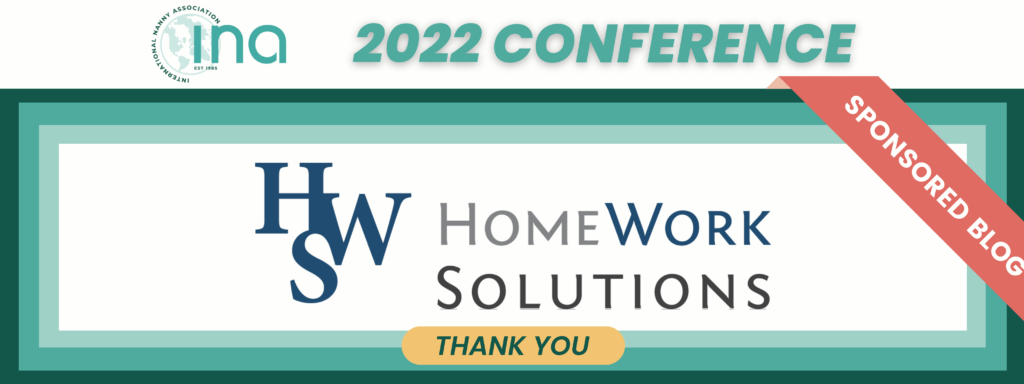Every penny counts these days. Be it a coupon code, a $50 referral bonus from your friends at HomeWork Solutions, or an unexpected gift certificate from your employer… every little bit helps. But did you know there are small changes nannies and other household employees can make that can pave the way to a more secure financial future, while staying in the careers they love. By re-evaluating compensation structure to take advantage of tax savings, you can ensure the most money possible ends up in the employee’s hands, rather than Uncle Sam’s pocket. These changes often benefit an employer as well, ensuring it is a win for everyone involved.
Health Insurance
There are now two great options for heathcare reimbursement arrangements. These reimbursements allow employees to choose their own health insurance coverage, while simultaneously being reimbursed for part or even all of the expense from an employer. Qualified Small Employer Health Reimbursement Arrangements (QSEHRA) and Individual Coverage Health Reimbursement Arrangement (ICHRA) are tailored for small employers not offering group health insurance, and support employees obtaining coverage on their state health insurance exchanges. Employers choose the maximum amount of the benefit in a given year, subject to caps of $5,450 (2022) for an individual and $101,050 (2022) for a family. The employee provides the employer proof of qualified expenses in the form of receipts with a reimbursement request. The employer keeps this documentation and reimburses the employee directly on a pre-tax basis. FICA tax savings of an HRA for a single employee can be as much as $405 for both employer and employee ($910 total). The Employee also benefits from a reduction in income taxes.
Alternatively, employers can provide health insurance to employees through a Small Business Health Options Program (SHOP), though these plans are not available in all states. With these plans, the employer chooses the coverage to offer, makes premium payments directly to the insurance company, and may choose to deduct some portion of the premium from employee pay. Once established, these plans are fairly easy to administer.
With any of these options, employees are provided health insurance, but also can use the savings to invest in retirement or other savings vehicles.
Educational Assistance
Educational expenses paid for or reimbursed by an employer (up to $5,250) are considered non-taxable educational assistance. This includes tuition, fees, books, supplies, and equipment. Educational Assistance Programs should be written documents, and employees cannot choose to receive this money as cash compensation instead of educational assistance.
The Coronavirus Aid, Relief, and Economic Security (CARES) Act) also introduced an opportunity for employers to pay an employee’s qualified student loans and interest on a pre-tax basis. This exclusion expires on January 1, 2026.
Commuter Benefits
Qualified Transportation Benefits can be provided to employees tax-free. Mass transit passes (bus, subway, rail, etc.) can be purchased or reimbursed up to $280 per month (2022). Parking costs near the worksite or a mass transit location used by the employee can also be provided or reimbursed up to $280 per month (2022).
Retirement Contributions
Household employers can contribute towards an employee’s retirement savings in a few different ways. Simplified Employee Pension (SEP) IRAs allow for contributions of up to 25% of employee pay, while SIMPLE IRAs allow employer non-elective contributions of 2% or matching contributions up to 3% of employee pay. Employer contributions to SEP IRAs and SIMPLE IRAs are not subject to FICA taxes, saving 7.65% in employer taxes. Further, employee contributions to an IRA are not subject to income tax until withdrawal.
All of these tax saving strategies are only available to you if you are being paid legally. Fair and legal pay itself provides additional basic safety nets, and financial benefits. If your employer is not paying you ‘over the table’ you are also missing out on social security and Medicare program benefits, being able to access unemployment benefits if needed, and having a verifiable income when you need to secure housing, loans, or other services.
Need more answers? Contact HomeWork Solutions for help! We are happy to speak with employers and walk them through why smart, legal, payroll is a win for everyone.


